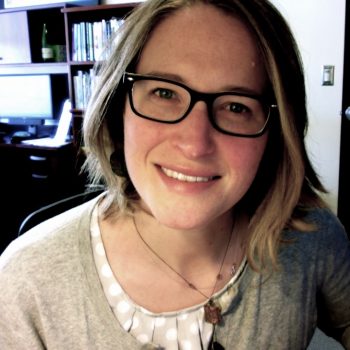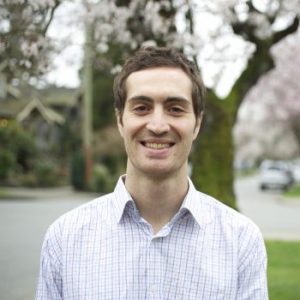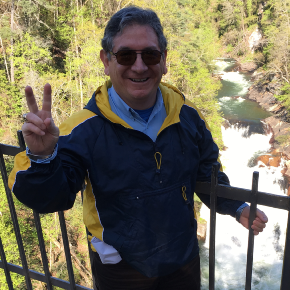Virtual Webinar: The webinar will feature a panel of student researchers working on topics related to freshwater governance, including stewardship, protection, and Indigenous laws and ways of knowing. This is the second annual “Water Research Roundup” offered as part of POLIS’ Creating a Blue Dialogue webinar series.
February 4, 2021: IRES Faculty Seminar with Mary Collins
IRES Seminar Series
Time: 12:30pm to 1:30pm (every Thursday)
Via Zoom
View video.
*********************************************************************************
Targeted pollution management, toxic emissions reduction, and jobs in US manufacturing over time
Analyzing the relationship between employment and toxic emissions at over 25,000 US manufacturing facilities between 1998 to 2012 demonstrates that significant reductions in toxic pollution can be achieved while avoiding equivalent effects on employment. Three simulations provide a comparison of the effects on employment of pollution management strategies targeted at highly polluting industries and facilities compared to strategies targeting a random or median subset of facilities and industries. Targeted strategies are effective because toxic emissions are disproportionally distributed; a handful of facilities and industries account for the majority of toxic emissions released in the US manufacturing sector. Moreover, these highly polluting facilities and industries do not employ significantly more workers than peer, lower polluting facilities and industries. The research challenges the narrative that protecting the environment must come at a significant cost to economic activity.
Mary Collins

Assistant Professor, College of Environmental Science and Forestry, State University of New York
Bio:
Dr. Mary Collins is an environmental social scientist and Assistant Professor of Environmental Health at the College of Environmental Science and Forestry at the State University of New York (SUNY-ESF). Dr. Collins uses hierarchical models to assess inequalities in pollution generation between US-based industrial facilities and potential human health impacts. Currently, she is working on the temporal dimensions of hazardous waste generation as it relates to links between specific chemical exposures and rare cancers in New York State.
Spooked by COVID-19, B.C. government invests in food processing, supply chain
Feb 3, 2021: Dr. Hannah Wittman said in an interview with National Observer that free trade deals like NAFTA have consistently made it more difficult for smaller, regional food processing facilities to compete with imported foods.
Feb 2, 2021: Natural Capital Conversations
The next Natural Capital Conversations features IRES’s Ale Echeverri and Rocio Lopez de la Lama! They will discuss how to measure nature’s non-material benefits: the Cultural Ecosystem Services of Water.
January 28, 2021: IRES Professional Development Seminar with Zia Mehrabi
IRES Seminar Series
Time: 12:30pm to 1:30pm (every Thursday)
Via Zoom
(This seminar will not be recorded.)
*********************************************************************************
What makes a good researcher?
A few months back, I led a short workshop at the Land Use and Global Environment Laboratory on this topic. One of the PhD students thought that other Masters/PhD students at IRES would benefit from me running the same workshop for the wider grad student body. So here you are. Come along to explore what makes a good researcher.
Zia Mehrabi

Research Associate, School of Public Policy & Global Affairs and the Institute for Resources Environment & Sustainability at UBC
Bio:
Zia Mehrabi is a Research Associate at the University of British Columbia, where he works on the food system, climate change, digital technology, and biodiversity conservation. At UBC he helps teach and mentor students, develop ideas, data sets, software and data science on sustainable food systems. He is an active member of the Global Land Programme, a contributing author to The Intergovernmental Science-Policy Platform on Biodiversity and Ecosystem Services, and a co-author on Ceres2030: Sustainable Solutions to End Hunger, and the forthcoming World Bank’s World Development Report 2021: Data for Better Lives.
Changes in Indian farm laws will ‘be good for Canada’ as well: experts
Jan 21, 2021: Dr. Shashi Enarth, an adjunct professor at IRES, gave comments to The Canadian Press about how a freer market in India would help corporations and countries that see it as a destination to sell produce.
Jan 26, 2021: The Time is Now: Canadian and Global Recognition of the Right to a Healthy Environment
Virtual Lecture: Join Dr. David Boyd’s discussion of the human right to a healthy environment, which is currently not recognized by national law in Canada. Introductory comments by Dr. David Suzuki & Canadian Greens leader Annamie Paul!
January 21, 2021: IRES Faculty Seminar with Fausto Sarmiento
IRES Seminar Series
Time: 12:30pm to 1:30pm (every Thursday)
Via Zoom
View video.
*********************************************************************************
Montology echoing new frontiers of socioecological services
As archetypes of the meta-geography of the vertical dimension, mountain metaphors remain at the core of animistic belief systems, religious cults, military strategies, economic potential and scientific innovation. I argue that transdisciplinary science and geocritical tropes, incorporating physical, human, and technical geography with humanities and arts, are the best approaches to understand the complexity of mountain systems. With examples of the boundary forest/grassland in the tropical Andes, I posit that manufactured landscapes, where the hybrids of nature-culture creations thrive, need conservation management attending a trilemma that favors indigenous mythologies and modern imperatives. By using examples from sociohydrology and biocultural diversity, I will grapple with the need of protecting microrefugia in the mountainscape as heritage loci. I will conclude that transdisciplinary, convergent science evidences the use of restoration ecology practices as indispensable in the conservationist’s toolbox to obtain sustainable, regenerative development.
Click here for a Research News piece describing Dr. Sarmiento’s work on mountains.
Fausto Sarmiento

Professor, Department of Geography, University of Georgia
Bio:
Fausto O. Sarmiento, Ph.D., professor of Geography at the University of Georgia, directs the Neotropical Montology Collaboratory. He studies human-environment interactions and landscape dynamics of biocultural heritage with transdisciplinary frames in socioecological mountainscapes. Working at intersections of Tropandean geographies, he is reconstructing ecological theory of farmscape transformation and identity markers amidst global environmental change, developing new narratives of mountain sustainability as tropical environments are constructed, represented, claimed and contested. In 2019, he received the Barry Bishop Career Award by the AAG’s Mountain Geography Specialty Group for his significant contributions to research, teaching and service for the mountains of the world.
ADAM STIRLING HOUR 3 Marginalized groups are exposed to higher cumulative air pollution
Dec 23, 2020: Dr. Amanda Giang joined the program to discuss the details of her & co-author Kaitlin Castellani’s recent study published in Environmental Research Letters.
Giving people money turns out to be an incredibly effective tool in ending homelessness
Jan 13, 2021 Fast Company highlighted the New Leaf project, a research initiative by Dr. Jiaying Zhao and Foundations for Social Change that evaluated the impact of giving direct cash transfers to homeless individuals.